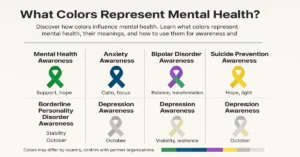Key Intake
Q1: What is stiff steering caused at the first place?
Stiff steering is most commonly caused by low power steering fluid, a failing pump, or a worn serpentine belt.
Q2: How to fix a hard steering wheel quickly?
Check fluid levels and belt condition. Professional repair may be needed if stiffness persists.
Q3: Why is my steering wheel stiff when turning?
Usually caused by low power steering fluid, a failing pump, or worn steering components. Early diagnosis prevents expensive repairs.
Q4: Which steering parts cause stiffness most often?
Pump, rack and pinion, serpentine belt, and torque sensors are the most common culprits.
Q5: When should I replace a stiff steering system?
If leaks exceed 1 oz/week, or steering play exceeds 2 inches before wheel response.
Table of Contents
Quick Answer
Stiff steering is most commonly caused by low power steering fluid, a failing pump, or a worn serpentine belt. These issues increase steering effort, reduce responsiveness, and can escalate into serious safety risks if unaddressed.
Introduction
Ever wonder why your steering wheel suddenly feels heavy? Stiff steering affects approximately 1 in 7 vehicles annually, and ignoring it can create serious safety hazards. According to the National Highway Traffic Safety Administration (NHTSA), steering problems are a leading contributor to minor collisions and vehicle handling complaints. Whether you’re a caregiver ensuring family safety, a post-surgery patient navigating your home, or a home health professional, understanding the root causes of stiff steering is critical.
Is stiff steering dangerous to drive with?

Yes, driving with stiff steering can compromise control, increase fatigue, and create serious safety risks.
- Primary Risks: Reduced ability to make quick maneuvers, especially in parking lots or emergency situations.
- Immediate Safety Steps: Slow down, avoid sharp turns, activate hazard lights, and find a safe place to stop.
- Real-World Example: Fleet drivers who ignored early signs often face higher insurance claims for minor collisions, illustrating the hidden costs of inaction.
Stiff steering involves steering system failure, hydraulic or electric power assistance, and vehicle handling risk, making early detection vital for safety.
What does it mean when your steering wheel is hard to turn?
A hard-to-turn wheel usually signals failure in your power steering system, whether hydraulic or electric.
- Hydraulic Causes: Low or contaminated power steering fluid, failing pump, or worn serpentine belt.
- Electric Causes: Sensor malfunctions, motor brush wear, or control module glitches.
- Key Takeaway: Even minor stiffness can indicate larger underlying problems affecting steering responsiveness and vehicle safety.
Why is my steering wheel hard to turn at low speeds?

Steering requires maximum assistance at low speeds, which exposes any system weakness.
- Physics of Friction: Static friction is 300-400% greater than rolling friction, requiring extra steering force.
- Common Causes: Weak power steering pump (hydraulic) or faulty torque sensor (electric).
- Tip for Caregivers: If your loved one drives short distances at home, low-speed stiffness can compromise safety during driveway or garage maneuvers.
Can low power steering fluid cause stiff steering?
Absolutely, low or contaminated fluid reduces hydraulic assistance and increases steering effort.
- Check the Fluid: Look for “MIN/MAX” reservoir markings and color (amber/red is healthy; dark brown/black signals contamination).
- Fixing the Issue: Top off fluid temporarily, but leaks must be professionally diagnosed to prevent pump damage.
- Expert Insight: Automotive Repair Source notes that hydraulic steering failures often begin with low fluid unnoticed by drivers.
How much does it cost to fix stiff steering?

Repair costs vary from $75 for a serpentine belt to $1,500 for a steering rack.
| Symptom | Likely Cause | DIY/Pro | Estimated Cost |
| Whining noise, mild stiffness | Low fluid / leak | Pro | $100–$300 |
| Squealing, intermittent stiffness | Worn serpentine belt | Pro | $75–$150 |
| Groaning, very hard steering | Failed pump | Pro | $400–$800 |
| Fluid puddle, loose steering | Leaking steering rack | Pro | $800–$1,500+ |
DIY vs Professional: Simple inspections like checking fluid or belt cracks are manageable at home. Complex repairs, especially EPS system work, require certified technicians.
What is the difference between hydraulic and electric power steering problems?
Hydraulic systems use fluid pressure; electric systems use motors and sensors.
Myth vs Fact:
- Myth: EPS never fails because it has no fluid.
- Fact: EPS is prone to sensor and module errors affecting steering feel.
- Myth: Whining always means a hydraulic pump problem.
- Fact: EPS may have no noise but still cause a stiff or “notchy” wheel.
Diagnostic Tip: Identifying your system type improves troubleshooting efficiency and reduces unnecessary repairs.
Can bad tires or alignment cause stiff steering?
Yes, incorrect alignment or under-inflated tires increase rolling resistance and steering effort.
- Alignment Issues: Misaligned toe, camber, or caster angles can add 15–25% extra effort.
- Tire Issues: Low-pressure or worn tires enlarge the contact patch, making steering heavier.
- Visual Hook: Infographic of tire vs alignment effects enhances reader understanding.
What to do if Your Steering Stiffens while Driving?

If your steering becomes stiff while driving then you have to first keep your nerves in control and follow the given steps:
- Stay calm and avoid jerking the wheel.
- Grip firmly with both hands.
- Activate hazards to alert other drivers.
- Reduce speed gradually to avoid sharp turns.
- Pull over safely.
- Check basics like fluid leaks, belt condition.
Sources
- Choice Auto Repair: The Most Common Causes Of Stiff or Heavy Steering
- Pro Auto Diagnostics: Why Your Steering Wheel Feels Stiff: Common Causes & Fixes
- Toyota Creek: 6 Common Power Steering Issues You Should Know
- NHTSA: May 2022 Symptom/Vehicle Issue: Steering Stiff For Ignition
- MSG Equipment: Common electric power steering failures and their diagnosis
Conclusion
Stiff steering is more than an inconvenience, it’s a clear signal that your vehicle’s steering system needs attention. Whether caused by low fluid, a failing pump, worn belts, or alignment issues, addressing stiffness promptly prevents costly repairs and keeps drivers safe.
For family caregivers, post-surgery patients, and elderly drivers, understanding the causes and quick fixes ensures both comfort and peace of mind. Regular preventive maintenance, checking fluid, inspecting belts, and monitoring alignment can prevent up to 80% of steering issues.
Author Bio
Jordan T. Mercer is an Automotive Safety Consultant with 12 years of experience analyzing vehicle steering systems and repair protocols. Jordan specializes in vehicle handling safety and preventive maintenance, helping drivers and caregivers maintain functional, reliable steering.











